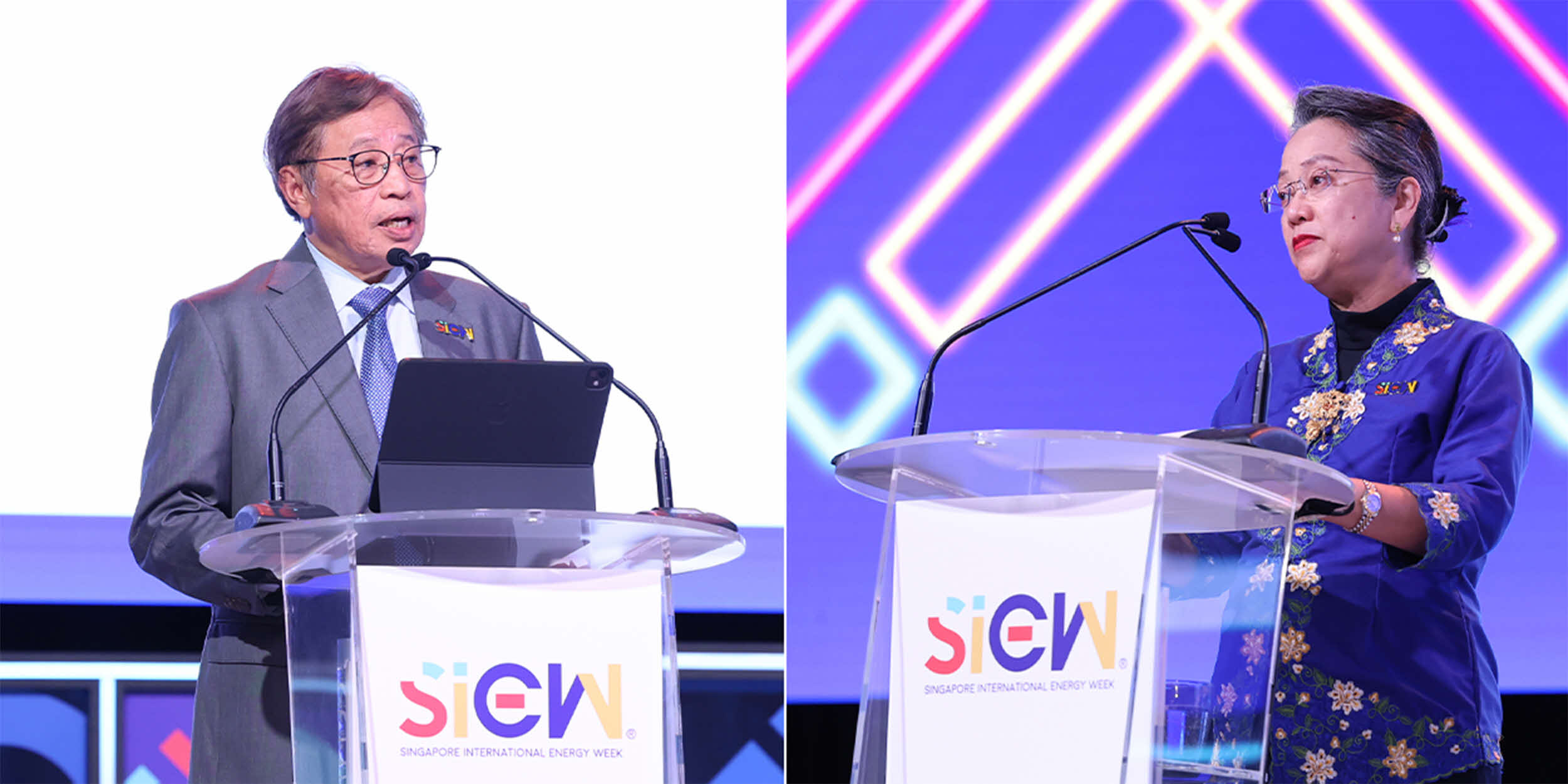In separate Keynote Addresses during the SIEW Summit, The Right Honourable Datuk Patinggi Tan Sri (Dr) Abang Haji Abdul Rahman Zohari bin Tun Datuk Abang Haji Openg, Premier of Sarawak, and H.E. Armida Salsiah Alisjahbana, Under-Secretary General of the United Nations Economics and Executive Secretary of the United Nations Economic and Social Commission for Asia and the Pacific (UNESCAP), shared their perspectives on regional energy cooperation and sustainability.

Both emphasised the importance of innovation, collaboration, and tailored strategies to achieve a sustainable energy future. They highlighted Southeast Asia's critical role in driving the global energy transition.
Sarawak's commitment to a sustainable energy transition
Tan Sri Abang Johari Openg showcased Sarawak's progress in expanding its renewable energy portfolio. He shared that the Malaysian state has surpassed its 60 percent renewable energy target for 2024, with hydropower playing a crucial role.
"Hydropower has been instrumental in reducing Sarawak’s grid carbon emission by an impressive 73 percent between 2010 and 2022. It has also accelerated rural electrification and fostered inclusive development, enabling Sarawak to power its progress through clean energy sources," he added.
Biomass power and green hydrogen initiatives
Sarawak is exploring innovative solutions, including floating solar farms, pumped-storage hydroelectricity, and biomass power generation. Inspired by the UK's coal-to-biomass transition, Sarawak is investigating Napier grass as a renewable bioenergy source.
Tan Sri Abang Johari Openg also revealed plans to develop a green hydrogen hub. "This emerging hydrogen economy opens up exciting opportunities for investment from cutting-edge technologies like fuel cells to energy storage and sustainable transport. By embracing collaboration, strong policies, and continuous innovation, we can build a future powered by clean sustainable energy," he added.
Sarawak's role in regional energy integration
Sarawak aims to play a pivotal role in Southeast Asia’s renewable energy transition by exporting its predominantly renewable power to neighbouring countries through the interconnected Borneo and ASEAN Power Grid.
Collaboration with neighbouring countries like Indonesia, Brunei, Sabah, and Singapore on cross-border energy projects enhances regional energy connectivity and accelerates decarbonisation efforts. This reflects Sarawak’s commitment to using clean energy as a catalyst for socio-economic growth in the region.
Regional cooperation and the potential of power system connectivity
Meanwhile, H.E. Ms Alisjahbana emphasised in her keynote the importance of regional cooperation in unlocking the potential of power system connectivity across Asia Pacific. She praised ASEAN for its leadership in promoting power grid integration, citing examples like the Lao PDR-Thailand-Malaysia-Singapore Power Integration Project as a successful example of multilateral energy trade. H.E. Ms Alisjahbana called for further collective action to navigate the complexities of the energy transition and ensure equitable benefits for all countries.
ASEAN's progress in regulatory harmonisation
H.E. Ms Alisjahbana highlighted three key initiatives promoting regulatory harmonisation and regional energy cooperation in ASEAN.
First, the Green Power Corridor Framework, endorsed by ASEAN, aligns power connectivity projects with the United Nations Sustainable Development Goals. Second, the establishment of an annual forum for regulators. "The key outcome of this initiative is a proposed school of regulation tailored to meet the capacity building needs of ASEAN energy regulators and stakeholders," she said.
Third, updates to the Asia Pacific Energy Portal now provide a complete map of existing and planned transmission lines. "Updating the Asia Pacific Energy Portal enables the identification of missing links that could potentially connect demand and supply sectors of renewable energy and support future planning for a regional power system master plan," she shared.
The keynote addresses at the Singapore Energy Summit underscored Southeast Asia's pivotal role in the global energy transition. Sarawak's renewable energy advancements and ASEAN's progress in regulatory harmonisation exemplify the region's commitment to sustainable development.
As Southeast Asia continues to innovate and collaborate, it sets a compelling example for the rest of the world in navigating the challenges of the energy transition.
Stay tuned as the conversation evolves throughout the day. Follow @SIEW_sg on Telegram and Twitter for key insights, as we navigate Day 1 together.